Health
Wales’ ambitious aim to offer all eligible adults a booster by end of the year
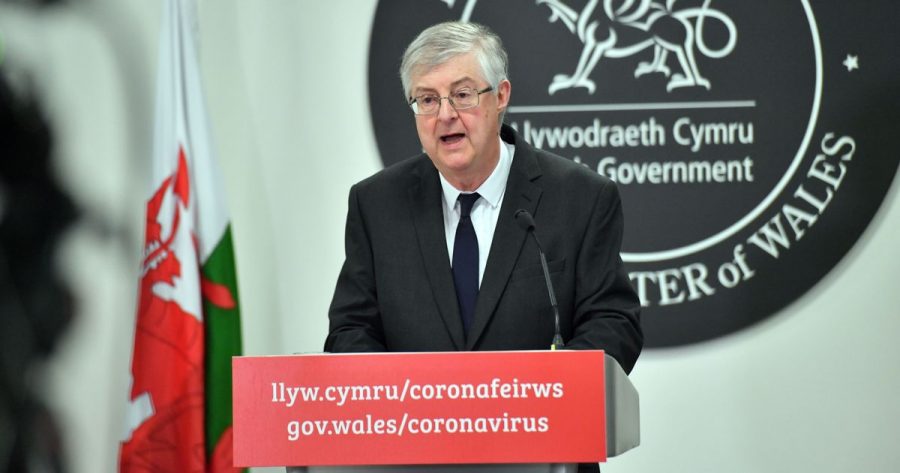
FIRST MINISTER Mark Drakeford last night set out Wales’ aim to offer all eligible adults an appointment for a booster vaccine by the end of December.
Urgent plans are being put in place to further accelerate the booster programme as new evidence has emerged showing two doses of the Covid-19 vaccine are not enough to offer protection against the new omicron variant.
But the booster dose is vital in improving protection against the fast-moving variant.
In a televised message to Wales, the First Minister said: “We must be prepared for omicron cases to rise quickly and very steeply – just as they have in other parts of the UK.
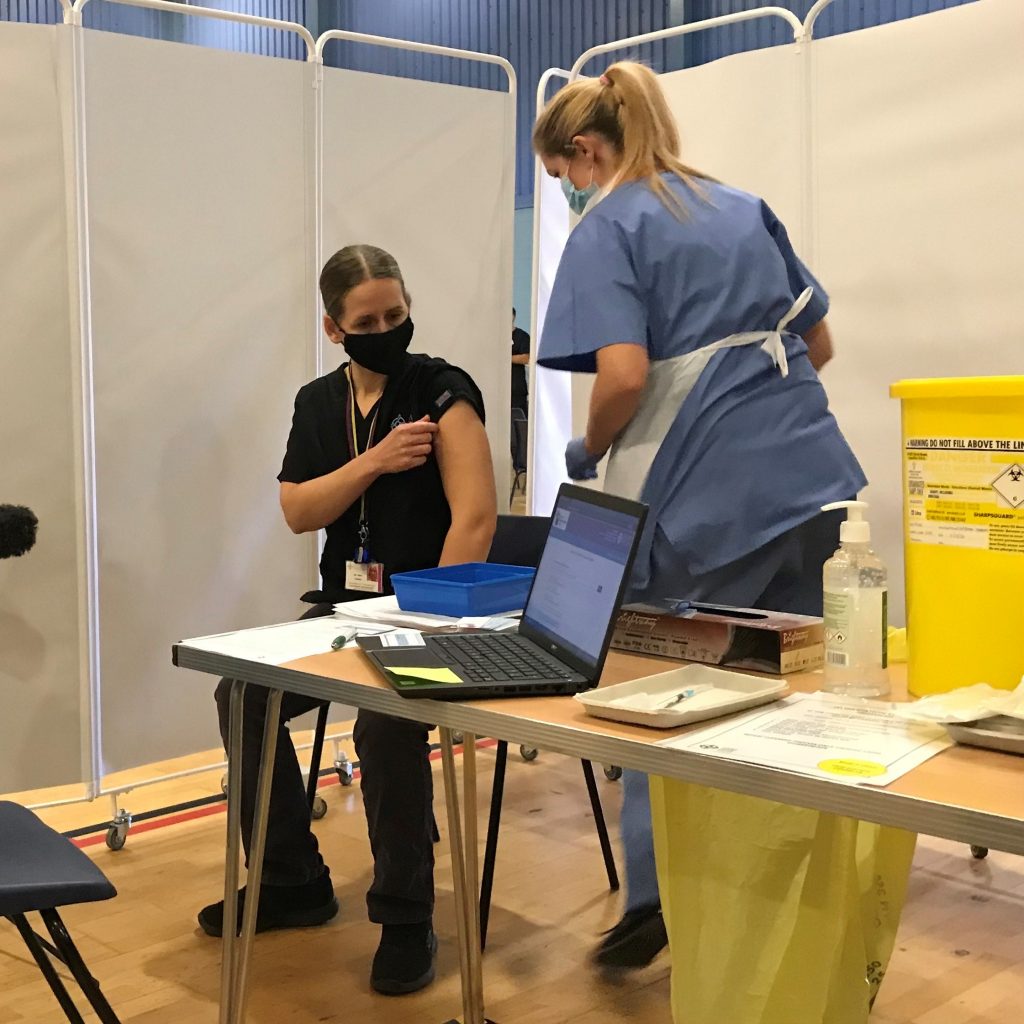
“We are still learning about this new form of coronavirus. All the information we have tells us we are facing a very serious situation. By the end of the month, omicron will have become the dominant form of the virus in Wales, bringing a new wave of infections and illness.
“This could then translate into a large number of people needing hospital treatment just at a time when the NHS is already under significant pressure. The Welsh Government will do everything we can to protect people’s health and keep Wales safe.
“New evidence has emerged about the effectiveness of our vaccines against omicron. Two doses of the vaccine is simply not enough to give the level of protection against the infection we all need. We have already increased the speed of the roll-out of our booster programme. New clinics have been opened and operating hours extended. Urgent efforts are now underway to accelerate the programme even further so we can offer all eligible adults an appointment by the end of this year if possible.
“Please make getting a booster a priority, as it is the single of the most important things you can do to protect yourself against coronavirus and this new variant.”
The First Minister added: “None of us wanted to hear the news of a new omicron variant. After almost two long years of the pandemic, we had all hoped that we could put coronavirus behind us this Christmas. Unfortunately, we are once again facing a serious and worsening situation. But, we have faced challenges many times during this pandemic.
“We can once again pull together to look out for each other – for friends, family and neighbours – to protect each other and keep ourselves safe and well. We have already taken some steps to increase protections in Wales and we may need to take some further steps to keep Wales safe.”
Commenting, Welsh Conservative and Shadow Health Minister Russell George MS said: “Whilst it is encouraging that all indications show Omicron is a milder form of the virus, it is more transmissible and it’s clear booster jabs are a vital defence against the variant. Therefore, it is essential that government infrastructure is geared up to deliver boosters on a war-like scale.

“The system clearly needs to be modernised to introduce more dynamism and flexibility like online booking systems, especially considering the numerous questions over how normalised regular jabs are going to become.
“After heeding our calls for walk-in centres and reactivation of the volunteer army, Labour’s Health Minister should now extend the hours during which people are vaccinated, making greater use of community pharmacists, reopening mass vaccination centres, and prioritising boosters over jabs for teenagers.
“We do not need more restrictions if a critical mass of people get their jabs. There is a duty on all those eligible to get their vaccination and the Labour Government has a responsibility to deliver the rollout rapidly. A free society and an open economy depend on it.”
The Welsh Liberal Democrats welcomed the accelerated vaccine booster targets but have also called for greater support to be provided to the hospitality industry over the winter.
Commenting Welsh Liberal Democrat Leader Jane Dodds MS stated: “I welcome the Welsh Government’s new target to offer every adult a booster vaccine by the end of December, vaccinations remain the best way out of this crisis.
“However, we would also like to see more financial support offered to hospitality firms being hit by reduced footfall due to concerns over Omicron. Despite no lockdown being in place pubs and restaurants are concerned about a drop off in trade during what is usually their busiest time of year, following fresh work-from-home guidance.
“Firms have already paid for stock for the Christmas period in the wake of supply chain disruptions. Much of this can’t be stored for the future, and even the small proportion that can will cause immediate cash flow disruption in already struggling businesses.”

GMB Union said it encourages everyone to get their booster – but says frontline workers need a pay boost too.
Rehana Azam, GMB National Secretary, said: “There has been no respite for our frontline workers throughout the covid pandemic.
“They’ve put themselves in harm’s way to serve the public – particularly when governments and employers failed to ensure the provision of proper PPE and testing to keep them safe at work.
“GMB members know the importance of keeping safe and well, that’s why we’re encouraging everyone across the four nations to get their booster.
“But as governments, yet again, ask our NHS, social care and key frontline workers to undertake another huge national effort, they are still not paying these workers properly.
“Against the backdrop of covid, there is a cost-of-living crisis, key services face an understaffing crisis and the people delivering them are enduring a wage crisis.
“That’s not good enough and it’s got to be confronted.
“Our key workers must be paid properly – it’s the least they deserve for everything they are doing for all of us.”
Health
Welsh NHS leaders hail GP contract deal as “vital step” in strengthening primary care

Agreement secures investment, digital upgrades and better patient pathways
WELSH NHS leaders have welcomed the successful conclusion of the new General Medical Services (GMS) contract for 2025-26 — and key elements of 2026-27 — describing it as a “positive example of social partnership” at a pivotal moment for general practice.
The deal, negotiated between Welsh Government, the Welsh NHS Confederation and GP representatives, sets out new investment and commitments for frontline primary care, including accelerated digital transformation through the NHS Wales App and strengthened support for population-level health management.
Darren Hughes, director of the Welsh NHS Confederation, said the agreement comes at a crucial time for GP services across Wales.
He said: “NHS leaders welcome this agreement as a positive example of social partnership in action. We also welcome the commitment to accelerating digital transformation for patients through the NHS Wales App and the measures agreed in the contract to enable enhanced population health management, such as diabetes management.”
Mr Hughes added that GPs and their multidisciplinary teams remain “the front door to the NHS,” and stressed that investment in general practice is essential if Wales is to treat more people closer to home.
“Evidence shows investing in primary and community care reduces demand on hospitals and emergency care and delivers returns of £14 for every £1 invested. To enable this shift ‘upstream’ from hospital-centred care to integrated services in the community, we must develop care pathways and joint performance measures that address the full needs of individuals,” he said.
Background: Why the GP contract matters
General practice forms the foundation of the Welsh NHS, handling millions of patient contacts every year. According to the latest official figures for 2023-24:
- Over 29 million calls were received by GP practices
- 18 million appointments took place
- 11 million of these were face-to-face
- More than 200,000 home visits were carried out
- 78 million prescriptions were dispensed
- Over 14,000 medication reviews took place
Demand has continued to rise while GP numbers have come under sustained pressure, particularly in rural areas such as Pembrokeshire, Ceredigion and Powys, where recruitment remains a long-running challenge. Practices in West Wales have repeatedly reported difficulties filling vacancies and increasing reliance on multidisciplinary teams, including nurse practitioners, pharmacists and physiotherapists.
The new GMS contract is therefore seen as a key mechanism for stabilising the sector, supporting digital access, improving chronic disease management, and helping to deliver the Welsh Government’s community-by-design programme, which aims to shift care away from hospitals and into community settings.
A recent survey by the Welsh NHS Confederation found that 74 per cent of NHS leaders support moving resources from acute hospital services into primary care, community-based services, mental health and social care, reflecting growing consensus around early intervention and prevention.
What comes next
The Welsh Government is expected to outline further detail in the coming months on how investment will be delivered at practice level, including support for digital tools, workforce development and shared performance measures with health boards.
With winter pressures mounting and hospitals facing record demand, NHS leaders say the success of the new GP contract will be central to improving access, reducing waiting times and ensuring patients in communities such as Pembrokeshire, Carmarthenshire and Ceredigion can receive timely, local care before conditions escalate.
The Welsh NHS Confederation represents all seven local health boards, the three NHS trusts, Health Education and Improvement Wales, and Digital Health and Care Wales.
Charity
Motorcycle fundraisers transform children’s play area at Glangwili Hospital

Long-running 3 Amigos and Dollies group marks 25 years of support
THANKS to outstanding fundraising by the Pembrokeshire-based 3 Amigos and Dollies Motorcycle Group, Hywel Dda Health Charities has funded a major improvement of the outdoor play area at Cilgerran children’s ward in Glangwili Hospital — a project costing more than £15,000.
The 3 Amigos and Dollies have supported Hywel Dda University Health Board’s children’s services for twenty-five years, with their Easter and Christmas toy runs becoming landmark dates in the local calendar, drawing hundreds of bikers and supporters from across west Wales.
The latest funding has delivered a full transformation of the ward’s outdoor space, including a re-sprayed graffiti wall, new toys and play equipment, a summer house, improved storage, and a moveable ramp to make the area more accessible for young patients. Members of the group even volunteered to help paint and refresh the space themselves.
Paula Goode, Service Director for Planned and Specialist Care, said: **“We are so grateful to the 3 Amigos and Dollies Motorcycle Group for their amazing support. Not only have they raised an incredible amount for the ward, but they have given their time to help make the outdoor space as special as possible.
“Outdoor play greatly reduces stress and anxiety for children, and it provides a vital opportunity to meet other young people going through similar experiences. It benefits both their physical and mental wellbeing, so we couldn’t be happier with the transformation.”
Tobi Evans, a volunteer with the fundraising group, said: “Because of the generosity of everyone who donates, we are able to give thousands each year. We are always humbled by how much people give, and it’s thanks to them that we’ve reached our 25th year.”
Katie Hancock, Fundraising Officer for Hywel Dda Health Charities, added: “We can’t thank the 3 Amigos and Dollies enough for their support for Cilgerran ward. You have put a smile on so many faces. Diolch yn fawr!”
Hywel Dda Health Charities funds items, equipment and activities that go beyond core NHS funding, making a meaningful difference to children and families across mid and west Wales.
Health
Patients treated in store cupboards as corridor care ‘normalised’

PATIENTS are being treated in store cupboards, break rooms and toilets as so-called corridor care becomes the norm in Welsh hospitals, the Senedd has heard.
Senedd Members warned treating patients in inappropriate areas has become a “daily reality” rather than an exception as they debated calls for the practice to be eradicated.
The debate was prompted by a petition – submitted by the Royal College of Nursing (RCN) and British Medical Association (BMA) – which gathered more than 10,000 signatures.
Petitioners demanded that keeping patients on trolleys or chairs for a long time be formally classified as a “never event” – a serious, preventable safety incident that should not happen.
But the Welsh Government rejected the calls, arguing the strict definition of a “never event” applies only to preventable medical mistakes – not systemic capacity pressures.
The petition urged ministers to start reporting on corridor care, pause reductions in hospital beds, invest in community care, and prioritise prevention and early intervention.
Sharing her own experience, Reform UK’s Laura Anne Jones argued corridor care is one of the clearest signs of a health service that has been allowed to fall into crisis.
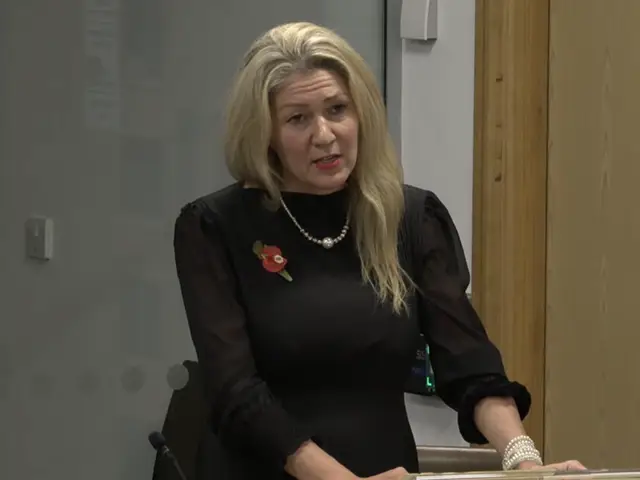
“I was placed on a broken bed in a corridor for two nights before a room became available,” she said. “I was in too much pain to care at the time but those caring for me said how completely inappropriate it was and kept apologising for it.”
Ms Jones added: “I could hear private conversations between consultants, doctors and nurses about other patients. And I was right against a curtainless window… there was no dignity, no privacy, and that’s just not OK.”
The Conservatives’ Joel James told the Senedd thousands of patients are now being treated on trolleys in corridors, in ambulances, store cupboards and other places not meant for care. “This is putting life at risk,” he said. “They are being treated without proper facilities.”
Mr James warned: “NHS Wales doesn’t even collect data on who is being treated in a corridor. That frankly should surprise no-one, as Welsh Labour’s philosophy has always been, if you don’t measure it, then there is no evidence to pin you down on it.”
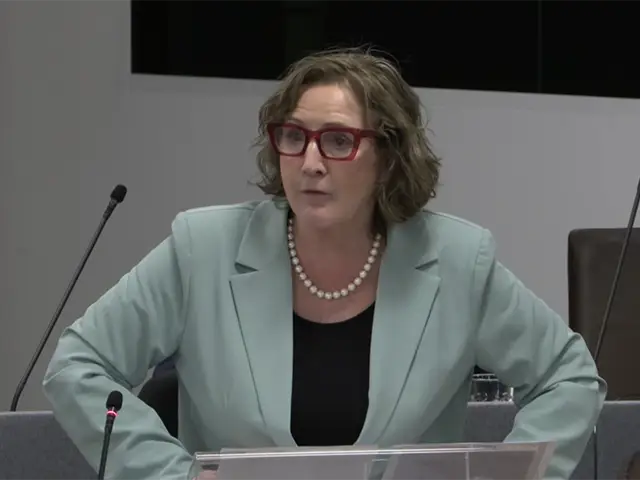
His Tory colleague Janet Finch-Saunders said: “I even know of situations where a paramedic will leave a patient in an ambulance with a new paramedic coming on. When that paramedic comes back on the next shift, the same patient is still in that ambulance
“How can that be morally right? It’s inhumane, it’s cruel and it’s certainly unacceptable.”
Mabon ap Gwynfor, Plaid Cymru’s shadow health secretary, warned the “demeaning and dangerous” practice has become an “almost inescapable” part of hospital care.
“What should be the exception has now been normalised,” he said.
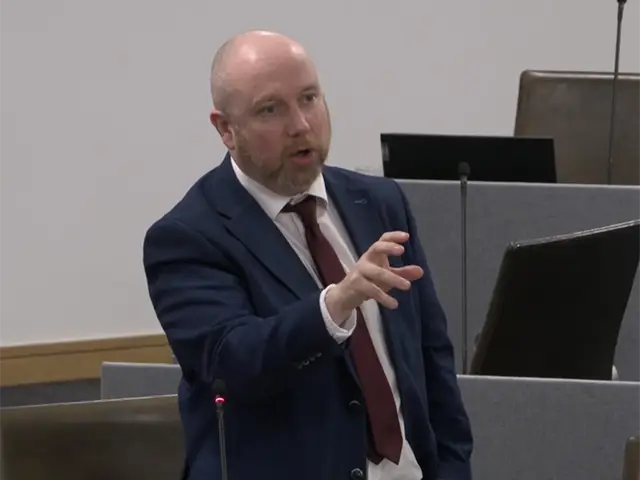
Rhys ab Owen, who sits as an independent, highlighted reports of patients being cared for in “car parks, break rooms and even toilets”.
Labour’s Carolyn Thomas, who chairs the Senedd’s petitions committee, warned that RCN and BMA members view corridor care as a “systemic national crisis”.
Responding to the debate on Wednesday December 10, Jeremy Miles acknowledged that corridor care “compromises patient dignity and staff wellbeing”.

But Wales’ health secretary insisted that designating corridor care as a “never event” was not the solution. “The delivery of care in undesignated or non-clinical environments doesn’t meet the criteria due to the complexity of underlying causes,” he said.
Mr Miles told the Senedd: “We do not endorse routine care in non-clinical environments. Our goal is to eliminate this practice through system-wide reform.
“Eradicating care in undesignated or non-clinical environments will not be a simple quick fix. It requires co-ordinated action across health and social care.”
-

 Crime5 days ago
Crime5 days agoPhillips found guilty of raping baby in “worst case” judge has ever dealt with
-

 Crime4 days ago
Crime4 days agoKilgetty scaffolder sentenced after driving with cocaine and in system
-

 Crime4 days ago
Crime4 days agoHousing site director sentenced after failing to provide breath sample following crash
-

 Crime4 days ago
Crime4 days agoMotorist banned for three years after driving with cannabis in system
-

 Education3 days ago
Education3 days agoTeaching assistant struck off after asking pupil for photos of her body
-

 News6 days ago
News6 days agoJury retires tomorrow in harrowing Baby C rape trial
-

 Crime4 days ago
Crime4 days agoMilford Haven pensioner denies exposure charges
-

 Crime17 hours ago
Crime17 hours agoMan spared jail after baseball bat incident in Milford Haven




























